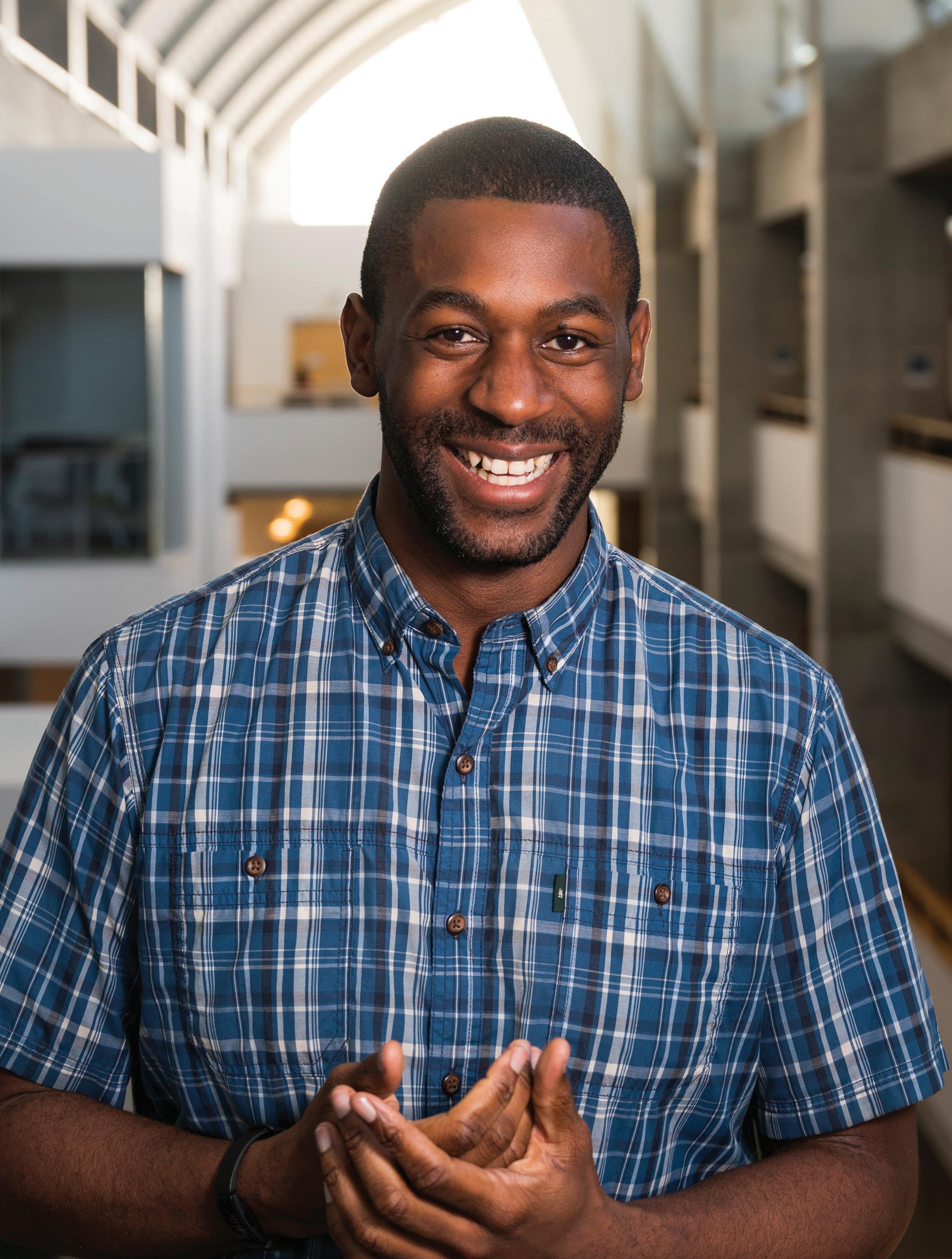
3 minute read
Magazine | Advocating for Others
Advocating for Others
Former foster youth found his voice, purpose at CSUMB
Advertisement
BY LIZ MACDONALD
“Are you a hugger?” Patterson Emesibe asked as he walked through the Starbucks, arms outstretched. After the greeting, he bantered with the barista.
“Look at me. Tell me how many scoops of matcha you think I need?” he asked her. She smiled, laughed, and together they agreed on the appropriate number of scoops. Emesibe’s people skills are among his greatest strengths.
The 25-year-old graduate student is pursuing his master’s in social work at CSUMB. The eldest son of Nigerian immigrants, Emesibe grew up with the cultural expectation that he would become a doctor, lawyer or engineer.
In social work, he’s found he can be all three: “I’m helping people heal, like a doctor. Through my advocacy, I’m changing the law, like a lawyer. And I’m building better systems for people, like an engineer,” he said.
Emesibe has overcome a lot to get to this place. When he was 12 years old, his father shot and killed his mother and grandmother in an act of domestic violence.
Afterward, Emesibe and his four younger siblings went into the foster care system. He fought to keep his family together as they bounced through three different foster homes.
At school, things were difficult as well. The story of his parents had hit the news, and Emesibe’s classmates were fishing for details.
“I got quiet,” he said. “I didn’t want to open up.”
Months later, he and his siblings were able to join his aunt’s family in Hesperia, California. It provided a fresh start. No one knew his history, and Emesibe developed new coping mechanisms to keep it that way.

Patterson Emesibe inside CSUMB’s Tanimura & Antle Family Memorial Library.
By Nic Coury
“I became popular on accident,” he said. He learned to shift conversations away from himself by being funny and spreading his friendships across many social groups. Even his close friendships were one-sided.
“I could get people to talk deeper about themselves,” he said. “They got to be seen, but they were not seeing me.”
Emesibe entered CSUMB as a premed bio major, still intent on fulfilling his family’s dream of becoming a doctor. He remained a social butterfly through his second year, when he realized he couldn’t maintain the charade any longer.
He’d always been an inconsistent student. He earned As in classes he liked while failing others. By sophomore year he was on academic probation and at risk of losing his financial aid.
“I had an identity crisis,” Emesibe said.
At a crossroads, he decided to explore classes from every major before settling on psychology. He also joined the Otter Christian Fellowship and the CSUMB chapter of California Youth Connection, an advocacy group for former foster youth.
“For the first time in eight years, I opened up and shared my trauma,” says Emesibe. “That’s when my healing started.”
Connecting with other former foster youth about what they had been through helped him express his own pain. Through their successful advocacy work at the state capitol, he realized his story could have an impact.
“My voice mattered.” he said. “I got really good with advocacy. It helped my self-esteem and gave me a sense of purpose.”
After graduation in 2016, Emesibe and several other students founded a youth-led community resource center in Salinas called the Epicenter that serves foster, at-risk and LGBTQ youth. To keep the program run by young adults ages 18 to 24, Emesibe stepped down when he turned 25. Next, he established a peer mentoring program at Door to Hope, a Monterey County mental health services agency.
In 2018, Emesibe returned to CSUMB to pursue his master’s degree. He hopes to continue creating organizations that help communities. He’s particularly interested in social entrepreneurship. He also wants to travel and keep being a good older brother and taking care of his family.
“I’m staying true to my Nigerian values,” he said. “I’m just doing the work further upstream.”









